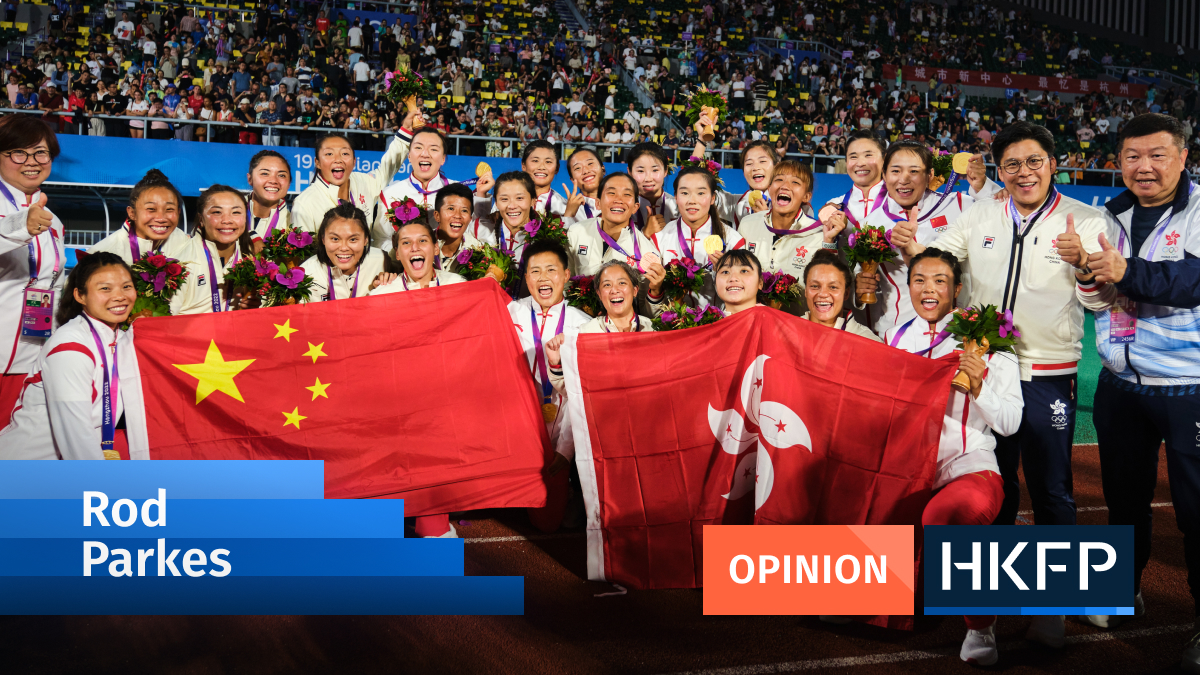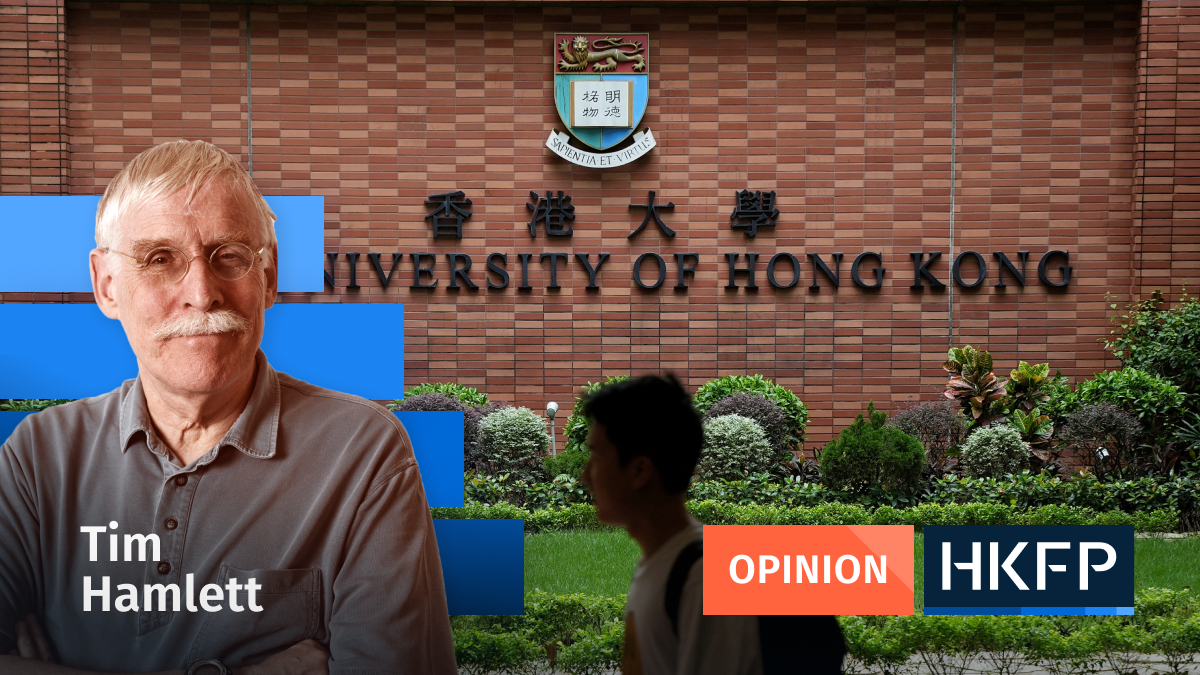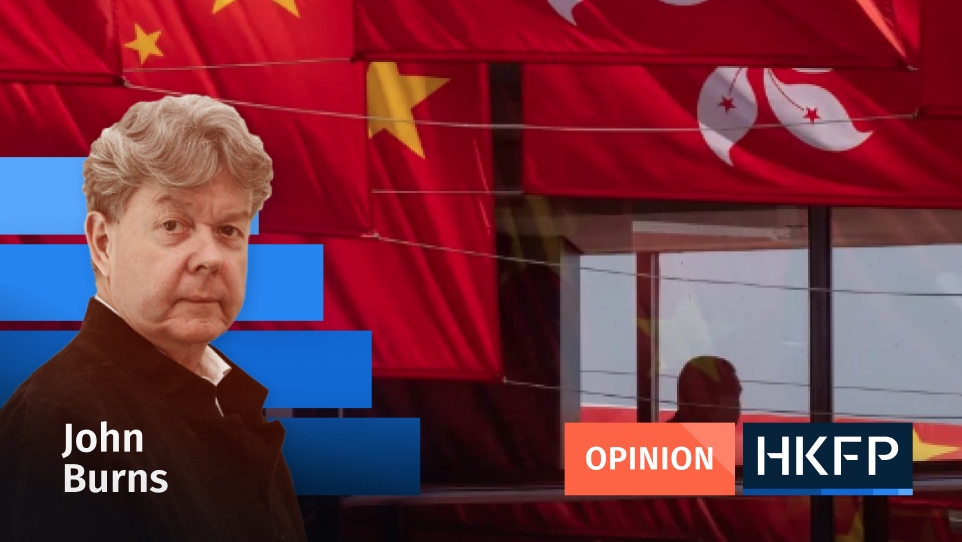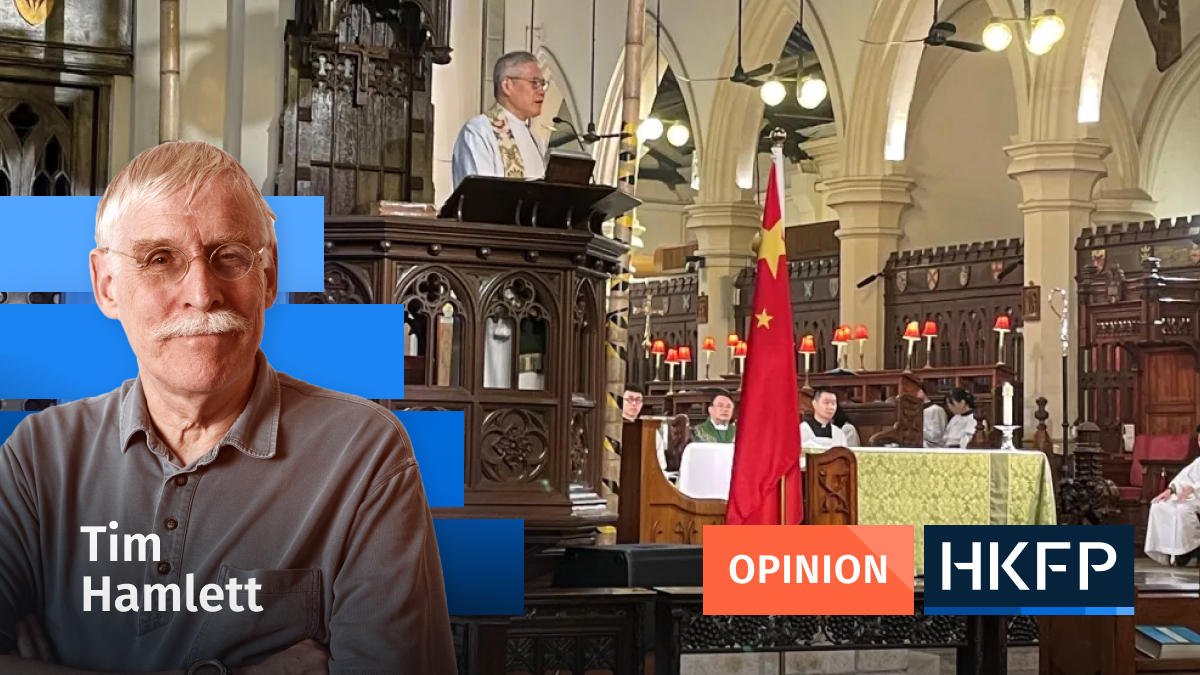Beijing must surely be held responsible for the death sentence imposed on Hong Kong’s democracy movement in 2020. That year, the national security law was promulgated by the central government on June 30 and went into effect immediately.
Its letter and spirit have since been used by the local authorities – government, police, and the courts – to put an end to the city’s democracy movement in all its dimensions.

Looking back at Apple Daily reports and the events of those days, less than two years ago, it already seems like a completely different world.
And it is. The activists, organisations, and their communications are no longer part of Hong Kong’s public life.
Recapping Beijing’s role
But beyond the new national security regime, Beijing’s responsibility extends back much further in time to when Chinese leaders demanded an end to colonial rule and wrote the terms-of-transfer for Hong Kong’s 1997 handover from Britain to China. The terms were written into a Basic Law, promulgated by Beijing in 1990, to serve as Hong Kong’s constitution for at least 50 years after 1997.
The terms were generous and clearly stated, albeit with qualifications that were only alluded to in passing. They were never defined or debated to reveal the full implications that only those familiar with the mainland form of government might appreciate.

The promises were also never explained. So, everyone, everywhere naturally applied Western meanings to the words as they had long been understood both here and in the West.
Best known among the promises is eventual universal suffrage elections for both Hong Kong’s chief executive and the Legislative Council (LegCo). But they also included familiar Western-style rights and freedoms: speech, press, education, religion, judicial independence, the right to vote, join unions, strike, demonstrate, equality before the law, and so on.
The watch words and slogans for all these promises were “one country, two systems,” and “Hong Kong people ruling Hong Kong” with a “high degree of autonomy.” There was also the guarantee: “50 years without change.”
Western-style universal suffrage was a particularly well-known concept because it was a point of contention throughout Hong Kong’s colonial life. The most recent campaign to introduce some form of universal suffrage elections – meaning one-person, one-vote with an unrestricted franchise – seemed set to succeed until the leftist riots of the mid-1960s gave Hong Kong’s colonial government yet another excuse to drop the subject.
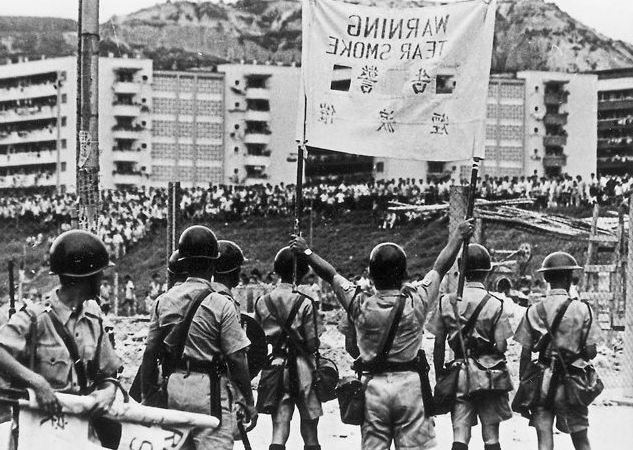
That left Hong Kong with the dubious distinction of being the only major British colony without some form of direct popular representation in government.
Beijing is correct to claim – as it is now doing – that the colonial authorities never bothered with direct elections until they faced the prospect of leaving behind several million people who were being promised the moon in terms of basic rights and freedoms, but who had no experience in self-government. And they were being placed under the rule of a sovereign not known for its liberal democratic inclinations.
The British had at least been able to call their way of governing here a “benign autocracy.” But there was nothing benign to be found anywhere in the political traditions of Beijing’s rule.
The first direct universal suffrage elections for local neighbourhood-level bodies were introduced in the early 1980s, after Beijing had made its intentions for 1997 known. But by the late 1980s – as preparations for 1997 began in earnest and the Basic Law drafting process got under way – Beijing decision-makers were very clear about the difference between Western-style democracy and the People’s Congress-style managed variety practised on the mainland.

This actually combined the two variations: direct elections, albeit only for officially approved candidates and only at the lowermost county level; and indirect elections from the county on up to the National People’s Congress. Then paramount leader Deng Xiaoping understood the difference, and explained it to Hong Kong’s Basic Law drafters in 1987.
Yet Beijing allowed the democracy movement in Hong Kong to grow around the demand for “genuine” Western-style elections – explicitly articulated as such – while unexplained delays continued from one election cycle to the next.
In the late 1980s, Hong Kong’s new movement for democratic reform began lobbying for at least a few directly elected seats in the colonial legislature. This step wasn’t allowed – reportedly due to Beijing’s objections – until the early 1990s. But it was not until 2014 that Beijing finally let it be known, quietly and without fanfare or explanation, that mainland-style universal suffrage was all it was willing to allow for the first step, which was to be a chief executive election.
Mainland-style meant predetermined, officially approved candidates, and electoral arrangements whereby only those candidates could win. Hong Kong’s December 19, 2021, LegCo election, under the new national security regime, is a case in point.

The specific item on the agenda in 2014 was the next chief executive election in 2017, for which universal suffrage was expected to be implemented. However, according to the National People’s Congress decision on August 31, 2014, candidates had to be approved by Beijing and endorsed by the same unreformed, Beijing-designed Election Committee that had been endorsing Beijing’s preferred candidates since 1997, before voters could have their say and endorse the decision already made for them.
Following the legislative formalities then in place, such an innovation needed a two-thirds LegCo majority in the 70-seat body to go into effect. Democrats had enough “no” votes to block its passage in 2015, but didn’t need them. Due to a communications mix up, pro-establishment legislators were not in their seats when the final vote was taken. The results: 28 no, 8 yes, no abstentions. Beijing’s 8 31 Decision failed to pass.
LegCo’s first universal suffrage elections were to have followed in subsequent cycles after the chief executive exercise had been successfully accomplished. The 8 31 Decision was silent on LegCo elections and nothing more was said about them until the drastic revamp of 2021.
Blame enough for all to share
Yet for their part, activists in the 1980s and 1990s, and the many democrats who won seats in LegCo and the District Councils after 1997, never demanded a public debate with Beijing representatives speaking for Beijing.
Such an exercise might at least have helped clarify just what kind of democracy Beijing meant when the “ultimate aim” of universal suffrage elections for the chief executive and for LegCo was written into the Basic Law Articles 45 and 68. There were many opportunities that might have been exploited toward that end.

Beijing had agreed to allow some incremental changes in the 2012 LegCo election. The Democratic Party was tapped to represent the camp as a whole in negotiating with Beijing’s representatives, hopefully to reach some sort of mutually acceptable solution. Activists were naturally agitating for more directly elected seats in the 70-member body, then split evenly between directly and indirectly elected seats.
The latter were filled by representatives of occupation-based Functional Constituencies. Sectors including business, banking, education, labour unions, lawyers, educators, each elected their own representatives.
The entire pro-democracy camp came together and agreed that no arrangement should be accepted that did not contain guarantees on moving toward the ultimate aim of universal suffrage elections and the abolition of the Functional Constituencies. Everyone wanted to see some sort of realistic pathway and timetable to go with all the vague “universal suffrage” promises.
But in the end, Democratic Party negotiators Albert Ho and Emily Lau agreed to a compromise that did not include any such guarantees. It simply entailed universal suffrage for another five LegCo seats bringing the total up to 40 in the 70-seat body.

And there was a catch. The five seats were to be reserved for candidates nominated by incumbent district councillors, and only incumbent district councillors could be nominated. The local councils were at that time dominated by a mix of pro-Beijing loyalists and pro-establishment conservatives, so it looked like a safe bet from Beijing’s perspective.
This was actually a compromise between democrats’ demand for more directly elected seats and the proposal from the dominant pro-Beijing political party, the Democratic Alliance for the Betterment and Progress of Hong Kong (DAB).
The DAB’s idea was to allow district councillors to nominate LegCo candidates, after which the public could choose from among the selection. If this solution proved workable, the aim was to use it to phase out the indirectly elected Functional Constituencies and replace it with district councillors who would then hold concurrent positions in both councils. However, since the DAB did not participate in the negotiations, publicity for its proposal was low-key, introduced mainly at forums and during media interviews.
The idea was also promoted as a way of introducing the goal of universal suffrage elections because the district councillors themselves had actually been directly elected by one-person, one-vote in their neighbourhood-level constituencies!

Although it was not promoted as such, this would also have been a direct transfer into Hong Kong of the mainland People’s Congress system that Deng had explained to Basic Law drafters in 1987. And it surely could be called universal suffrage, which in a sense it was – mainland-style – as promised in China’s constitution, as well as in Hong Kong’s Basic Law.
Yet when activists and party leaders were asked why they were not publicising the proposals as coming from the DAB and from mainland-style People’s Congress elections, the question always drew a blank.
The DAB’s proposal, and its mainland provenance, were never explained, despite the public’s active interest in the outcome of the negotiations and widespread demands for a clear path towards Western-style universal suffrage elections.
The public understood in a general sense that something was wrong, but did not have the ability to do more than lash out at Beijing’s apparent duplicity. The Democratic Party contingent was heckled and vilified throughout the July 1 march in 2010. Unconscionably, even the cancer-stricken party founder Szeto Wah, who had given his blessing to the compromise, was mocked with the suggestion that his illness must have affected his judgement.

But the anger and ridicule were never articulated in a way that might have led to clearer public understanding of the DAB’s 2010 attempt to “mainlandise” Hong Kong’s quest for Western-style universal suffrage.
The failure of the city’s democrats to contemplate Beijing’s likely end game was apparent in other instances as well. In 2014, when a group of pro-democracy lawyers was asked why no one had ever demanded to know more about the meaning of Basic Law Article 5, the question also drew a blank.
Article 5 promises that: “The socialist system and policies shall not be practised in the Hong Kong Special Administrative Region, and the previous capitalist system and way of life shall remain unchanged for 50 years.”
Socialist system is shorthand for Communist Party rule and all that goes with it. It’s not just about the economy, ownership of the means of production, and the distribution of wealth, as commonly understood in the West. Beijing’s White Paper, issued just after the LegCo elections last December, finally explained the terminology in full.
Better late than never, apparently.
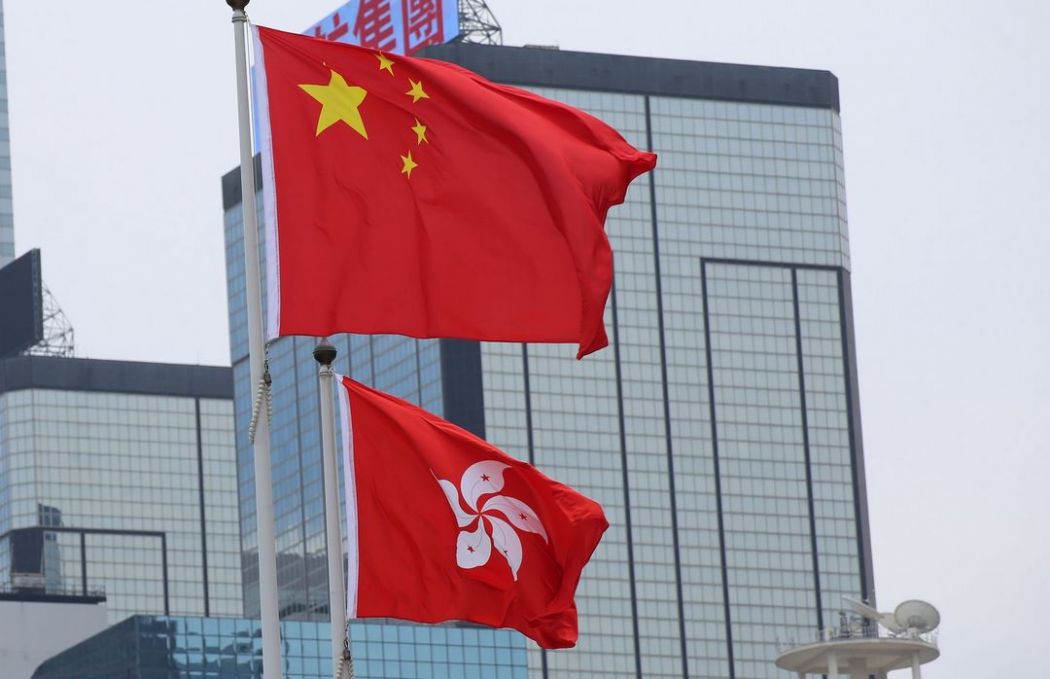
“The socialist system practised on the mainland, the main body of the country, and the capitalist system in Hong Kong, run in parallel. However, the fact that the latter is subordinate to the former is not to be challenged. Leadership by the CPC is the defining feature of Chinese socialism, and it is at the core of the order established by the Constitution.”
Socialism was the default position and always the threat, written into the Basic Law from the start, along with the option of a 50-year interlude if all went well. And Beijing probably never had any intention of allowing Western-style universal suffrage elections here either, unless they could produce the correct patriotic results, which Deng feared they could not.
Nevertheless, the campaign was allowed to continue and the agitation escalated from one disappointment to the next, culminating in the insurrectionary protests of 2019. Ultimately, these were at least condoned, if not actively encouraged, by the entire pro-democracy camp and its voter base as well.
Yet, even now, some moderate democrats still cling to the idea that if only they had all agreed to Beijing’s 8 31 Decision, compromises could have been reached. Then, incrementally – in the fullness of time – genuine universal suffrage elections might actually have been achieved.
Recriminations
Among themselves, in private conversations, there is no end to argument – but in public not so much. Media communications of all kinds can be monitored and are being used as evidence when investigations lead in that direction. But one online post provides some insight into the dilemma that erstwhile activists and others are now debating.
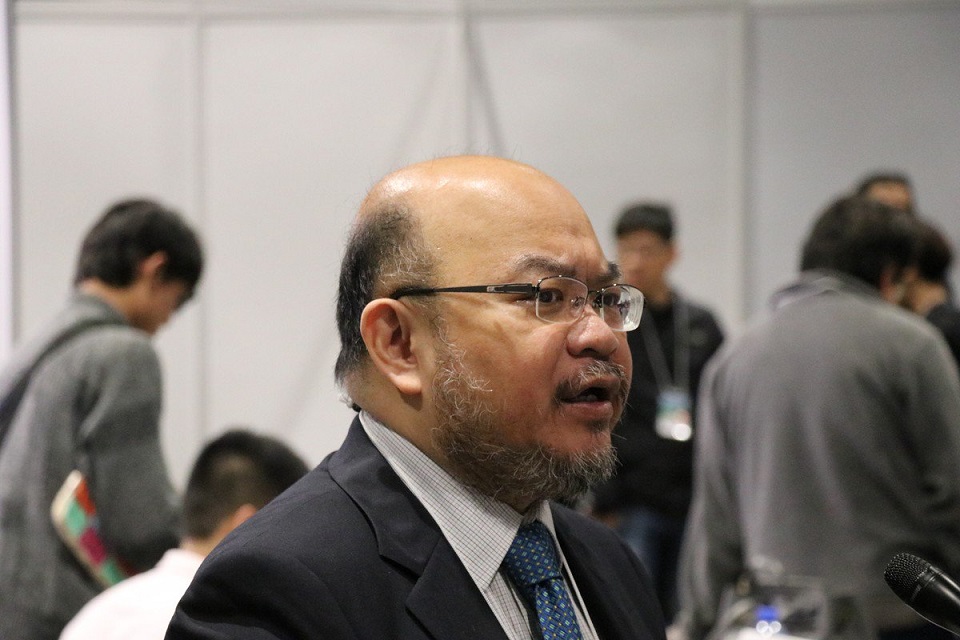
The post features opinions from older generation moderate pan-democrat Ivan Choy and some of his critics, the latter of whom argue from a new-style localist perspective, which has grown in influence among pro-democracy sympathisers since Beijing revealed its 8 31 Decision. This triggered the Umbrella Movement’s 79-day street blockades between September and December 2014, and also marked the rise of a younger, student-led vanguard for the democracy movement.
By the 2016 LegCo elections, virtually all the participating pro-democracy political parties had declared themselves for “self-determination,” a principle that Beijing decided was tantamount to a demand for independence. It was the growing strength and radicalisation of the entire democracy movement leading up to the 2019 protests that finally provoked Beijing leaders’ wrath.
The aforementioned online post featured an interview that Choy gave to the politically correct outlet HK01. Choy is a senior lecturer in the Chinese University’s Department of Government and Public Administration. He is famous for his in-depth statistical analyses of Hong Kong local elections and his regular columns in the Chinese-language Ming Pao.
In June 2021, Choy announced that he was retiring his columns, saying it had become too difficult to judge what sort of trouble writers like him might bring upon themselves in the national security era. But he continues to speak out, and the views he expressed in the HK01 interview did not endear him to a localist-inclined audience.

In the interview, Choy complained that for the past decade, Hong Kong’s democracy movement had been taken over by radicals who failed to understand the art of advance and retreat. He spoke from first-hand observation. The Chinese University was once a hotbed of student radicalism and he blamed intractable radical views for the collapse of Hong Kong civil society. As a result, all that the older pro-democracy generation had achieved in the past 30 years had been swept away in a flash.
He traced the split back to the mass resignation de facto referendum campaign led by the League of Social Democrats and the Civic Party in 2010. The League was then led by Raymond “Mad Dog” Wong Yuk-man and “Long Hair” Leung Kwok-hung, neither of them young.
The Democratic Party had refused to join the referendum campaign and instead pursued its plan to negotiate with representatives of Beijing’s Liaison Office. This was the exercise that produced the 2010 political reform compromise.
Choy also mentioned the 2012 anti-patriotic education campaign led by middle schooler Joshua Wong and his friends. University students then joined the drift into radicalism, and it finally went mainstream in 2019.
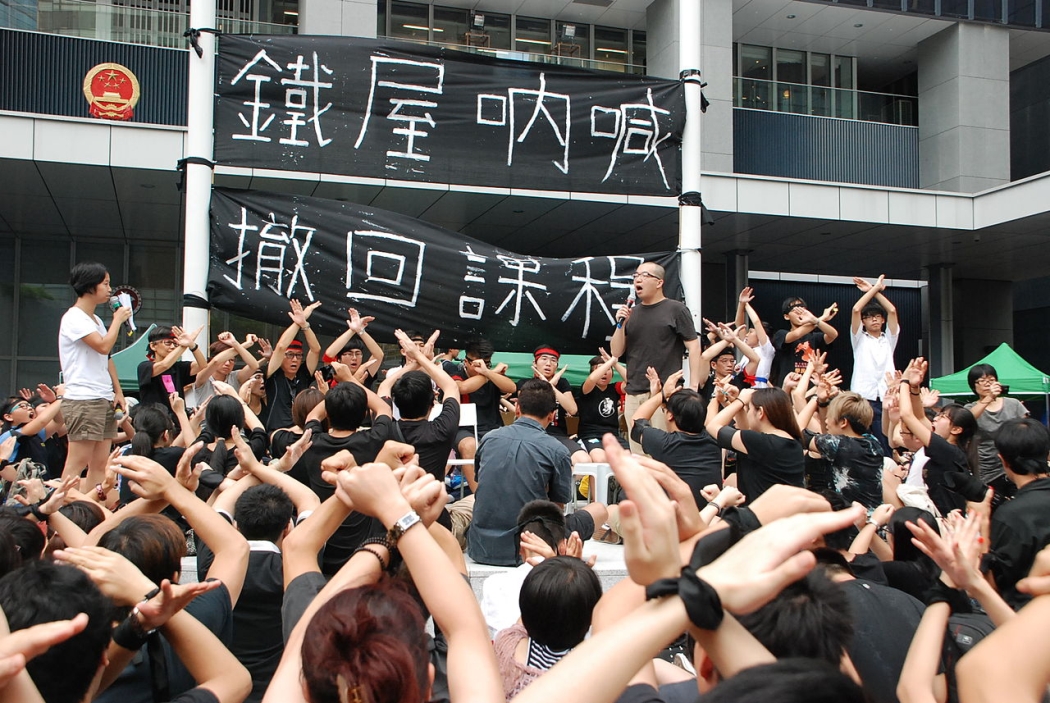
Choy thought that Beijing was also responsible since it had failed to follow up on the Democratic Party’s moderate initiative. The public needs to see that compromise and consultation are necessary because they can produce results.
In this case, there were none, so the moderate way was discredited, and the entire movement was radicalised as a result. Choy seems to share the moderates’ failure to question whether Beijing ever had the intention of following up on any moderate initiatives.
But for their part, he said, the younger generation of radicals had produced nothing. In 30 years, the older generation achieved a civil society, press freedom, free speech, and a semi-democratic electoral system. The younger generation takes all this for granted but forgets that before them, there were none of these things.
And now because of them, none of these things exist. Because of their intransigent radicalism, the democracy movement’s 30 years of achievement have been lost.
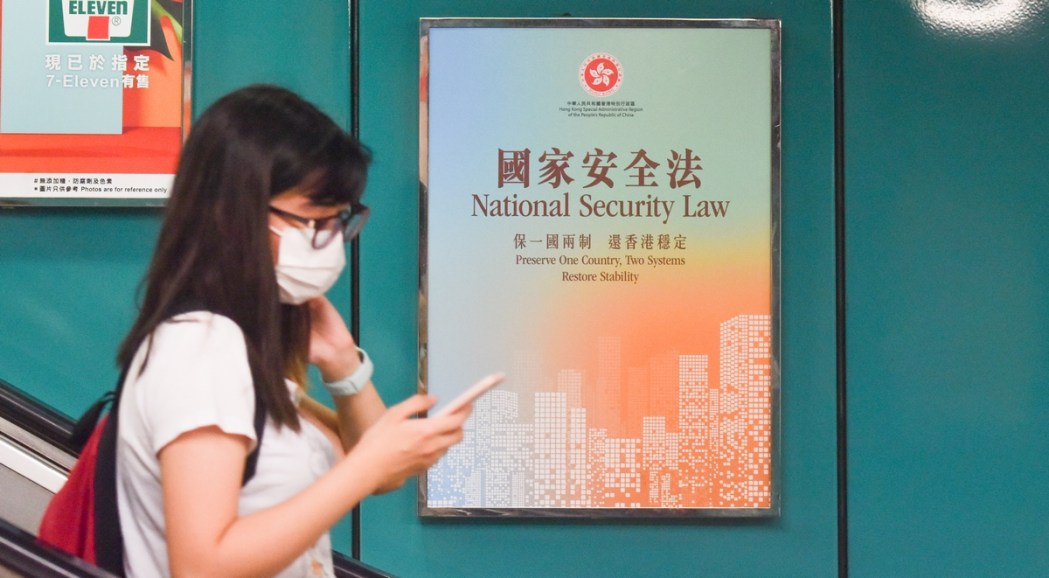
Choy’s comments were included in the online post for reflection and discussion, and his perspective naturally provoked some angry rebuttals from its readers. These views were at once more inward looking than his, as befits the localist perspective, but more realistic. In their version, Beijing was too powerful to grant any concessions on Hong Kong’s behalf.
But this localist reasoning erred in calculating that since Beijing was too great an obstacle, Hong Kongers could retreat into their shell, into a kind of defiant culturally isolated fortress of their own and preserve it for themselves forever. They typically did not address the issue of independence directly although a few at this end of the spectrum had tried in years past and were quickly silenced.
Targeting Choy’s lament, his critics said the older moderate pan-democrats had never accepted responsibility either for their actions or their inaction. The public turned toward localism and radicalism because of disappointment due to repeated betrayals and the too apparent desire of old-line democrats for fame and fortune – in this context meaning the recognition that comes with running for public office as the route to a comfortable well-paying job.

If not for localists and radicals, beginning in 2014, the struggle would have ended right then and there due to pan-democrats’ history of compromise, retreat, and surrender. All the public’s marching and struggling would never have taken place but for the energy and activism of others. Pan-democrats kept retreating and gained nothing.
Choy has failed to acknowledge the price that must be paid when people fight for freedom. Instead, he takes credit for the small gains Beijing granted and sees them as victories won by moderation.
Learning the hard way
Considering how the Hong Kong experiment ended, it should come as no surprise if disagreement over causes and consequences continues forever. It was probably doomed from the start, but at that time the possibilities caught many imaginations.
The challenge: to build a democratically governed city of several million people with no tradition of local self-government, and to accomplish that feat under Chinese Communist Party rule.
But at least some key lapses are becoming apparent in the wake of failure. Whether Deng and Beijing decision-makers were duplicitous from the start may never be known – unless the records and documents from the Basic Law drafting exercise of the 1980s are eventually made public. But the drafters used language so oblique and so obscure that it seemed deliberately calculated to gloss over key differences –like those between Western-style universal suffrage and the People’s Congress variety.

Perhaps it was done in bad faith, but with the aim of addressing the immediate need to quiet fears ahead of the transition from British to Chinese rule. Or, giving the full benefit of the doubt, the Aesopian language might just have been due to a simple case of hoping for the best but preparing for the worst.
Conversely, the key failure of the old-style moderate pan-democrats was their insistence on taking the Basic Law’s words at face value, without questioning the conventional Western understanding of those words. They never asked what Beijing intended when it promised eventual universal suffrage elections for LegCo and the chief executive.
The younger generation came closer to asking and understanding, but instead of forcing an open debate with Beijing, they concluded it would be a fruitless exercise and thought, somehow, they could go it alone. But they were, in effect, assuming that Beijing would just stand by with arms folded and leave Hong Kong to enjoy its separate culture and way of life undisturbed.
The younger generation of localists and radicals were also correct to claim credit for keeping the movement alive while many among the older generation lapsed into the semi-comfortable existence that came with Choy’s semi-democratic way of life.

But both the older and younger, moderate and radical, made the same mistake, deriving from the same failure to demand definitions. Both looked to Beijing’s promises about “Hong Kong people ruling Hong Kong” with a “high degree of autonomy” – and never demanded to know what Beijing meant by autonomy.
The word can have a range of meanings in practice, none more so than under Beijing’s way of governing. Tibet and Xinjiang were forced to learn this lesson the hard way. Now it’s Hong Kong’s turn.
For Taiwan – contemplating Beijing’s current inopportune promises of Hong Kong-style one-country, two-systems autonomy – the future lies in wait.
Support HKFP | Policies & Ethics | Error/typo? | Contact Us | Newsletter | Transparency & Annual Report | Apps
| HKFP is an impartial platform & does not necessarily share the views of opinion writers or advertisers. HKFP presents a diversity of views & regularly invites figures across the political spectrum to write for us. Press freedom is guaranteed under the Basic Law, security law, Bill of Rights and Chinese constitution. Opinion pieces aim to point out errors or defects in the government, law or policies, or aim to suggest ideas or alterations via legal means without an intention of hatred, discontent or hostility against the authorities or other communities. |
Help safeguard press freedom & keep HKFP free for all readers by supporting our team

More HKFP OPINION:
HKFP has an impartial stance, transparent funding, and balanced coverage guided by an Ethics Code and Corrections Policy.
Support press freedom & help us surpass 1,000 monthly Patrons: 100% independent, governed by an ethics code & not-for-profit.


